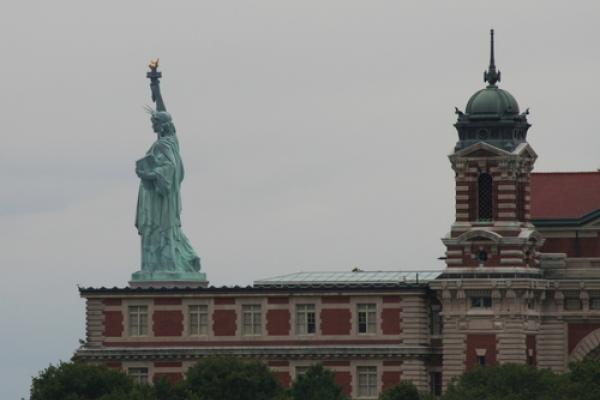"'Lord, when was it that we saw you hungry and gave you food, or thirsty and gave you drink? And when was it that we saw yo a stranger and welcomed you, or naked and gave you clothing? And when was it that we saw you sick or in prison and visited you?' And the king will answer them, 'Truly I tell you, just as you did it to one of the least of these who are members of my family, you did it to me.'"
--Matthew 25. 37-40
All this immigration talk reminds me of an encounter my wife and I had at a fast food restaurant in Atlanta. The night manager was Hispanic. He came by our table to make sure everything was all right. We started talking. I told him how troubled I was over our immigration debate.
That casual remark opened his door wide. He told me how scared many of his friends were. Some had already left the state. He told me they only wanted to work and send money back home where things were so tight. One very sick friend, he said would not go to the doctor or hospital because she was afraid of being deported. He told me he kept reading that these immigration laws had nothing to do with racial profiling.
He shook his head. “I have been stopped six times in the last few months mostly because I was Hispanic.”
Read the Full Article

